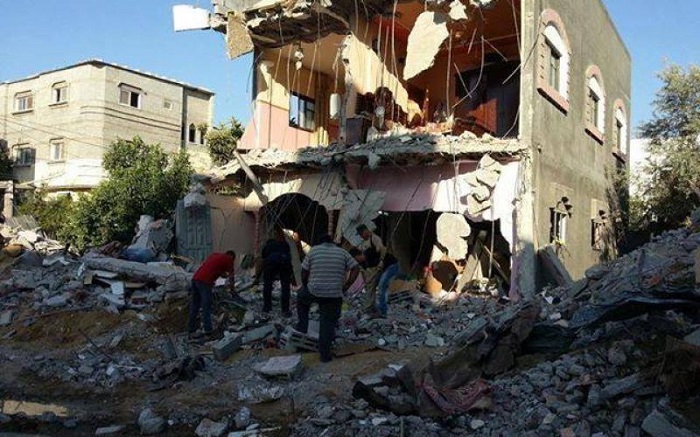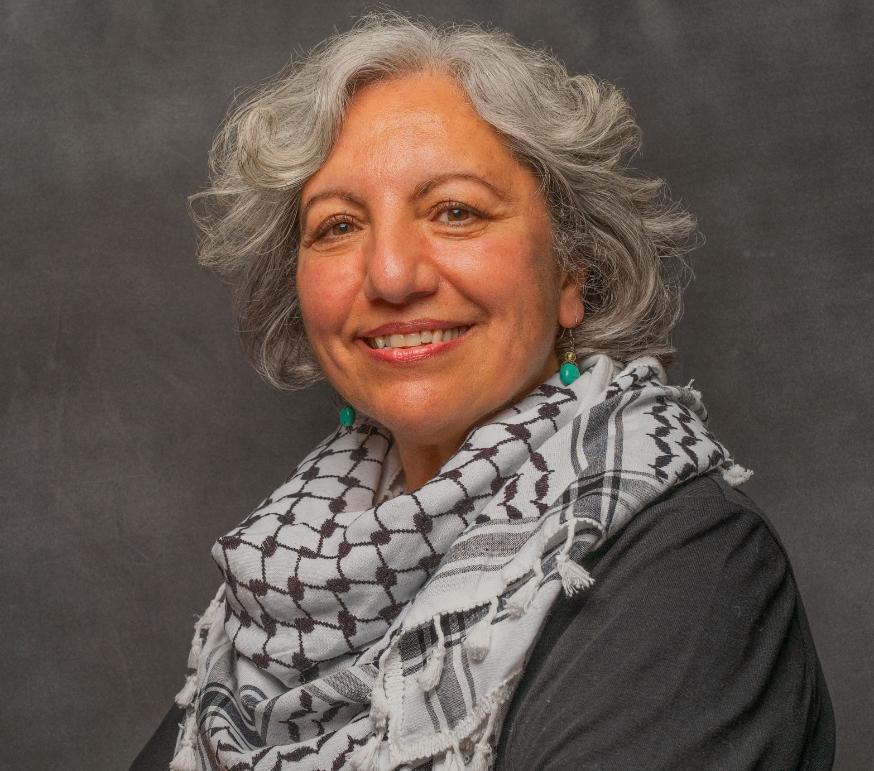
Walking in our neighborhood every day brings me painful and dreadful memories of the first day of the 2014 aggression. We were eating lunch when a massive explosion shook our home. Some of the windows shattered and we couldn’t see anything but smoke, dust, and shattered glass. After a minute, we heard another explosion from the same direction. We were all so afraid and my sisters started crying. I could hear people outside screaming for help, so my father and I went into the street, shocked and barefoot. Our neighbor’s house, occupied by the Nouasra family, had been bombed.
“There were five people inside the house!” a neighbor shouted. He and others joined the paramedics to search the rubble for survivors—really, any sign of life. But there was none. I watched as they pulled the body of my friend Salah out of the rubble just 10 meters away. Only two days earlier, we had played football together. Then came the body of his pregnant wife, Aisha, who would have given birth to her first child in a few days. Her body lay on the ground, covered in a white cloth stained with blood. That was the first time I was so close to a dead person, and I felt pain in my knees and chills all over my body. I cannot forget that sight; it still haunts me until now. In the garden next door, the rescue workers found the bodies of Salah’s two young nephews. They had been standing by the window when the shells hit.
When I returned home, I heard the radio announcer say, “Five Palestinians were killed in an Israeli bombing of a house in the Maghazi refugee camp.” I said to myself, “What does he know? The newscaster wasn’t there and he didn’t see the catastrophe! His news report could not tell the story of these five people like I could.”
Conditioned to fear the worst
Unfortunately, the tragedy of war does not end when the fighting stops. Many Gazans suffer from psychological trauma months and years later. Palestinians who are scarred by these wars can tell stories the numbers don’t reveal. Israel still randomly strafes some areas in Gaza from time to time, and when that happens, you can see how children—and even adults—have been conditioned to fear the worst. In our house, my mother shouts, “Stay away from the windows and go to the ground floor until the bombing ends!” Like most of residents of the Gaza Strip, I have trouble sleeping, not only due to the memories but also because of the buzzing of Israeli drones.
These destructive Israeli measures also have devastated the Palestinian economy—Gaza’s in particular. I walked into a shop in our neighborhood once while the shop owner, Abu Imad, and a customer, argued. Awni, the customer, clutched bags of diapers and bread, trying to persuade Abu Imad to let him take them on credit, for payment later.
“I need these diapers for my baby. I promise I will pay you back; just give me more time. You know how bad the economic conditions are,” he pleaded. But Abu Imad refused and Awni left, his eyes despondent. I felt badly for him. Abu Imad tried to explain: “More than half of my customers take things on credit and can’t pay me back regularly. Some can’t pay me back at all. This is the situation in the Gaza Strip. I feel sorry for them, but I have a family to feed.” I didn't know how to respond.
Dreams denied
Another memory: High school was a special period of my life. I had a group of friends who were like brothers to me. One day during break, we sat together and discussed our plans for university. My best friend, Faris, and I wanted to study English literature, and the rest of the group chose other majors. We talked passionately about the jobs we dreamed about. But only two of those seven friends ended up studying at university. Some, including Faris, had to work to help their families earn a living, and others decided not to pursue university studies because of the high unemployment among graduates.
Recently, my friend Faris called me and we chatted about our high school days. I avoided talking about my college classes so he wouldn’t feel badly, but he broke my heart when he ended the conversation with, “I wish we were colleagues and best friends at the university too.” I found myself speechless again.
Israel has inflicted so much pain on the people of Palestine: displacing us; controlling our economy; imposing a blockade on Gaza; waging wars; kidnapping our young men off the streets and from inside their homes; and denigrating us as terrorists. Each of us has countless stories of misery both large and small. Nevertheless, we Palestinians are still standing and teaching the world lessons in resilience, patriotism, and steadfastness, even when we feel we are barely alive.











